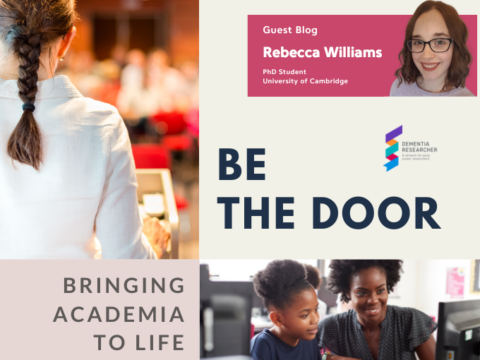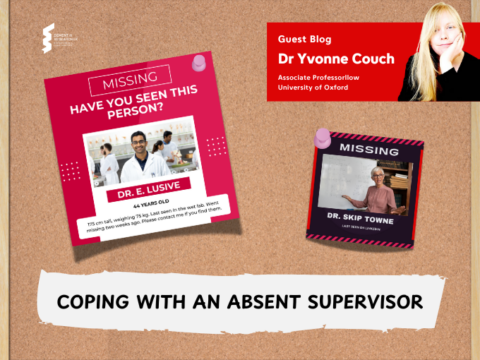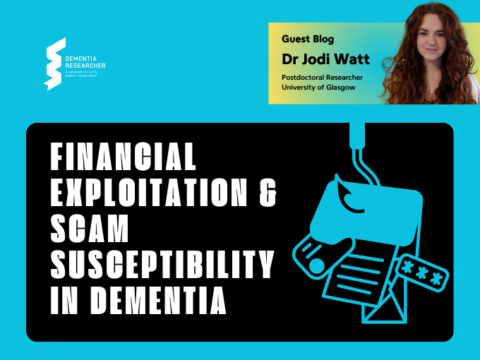This week’s corner of my mind comes courtesy of me. This week I have inspired myself from many different angles, it turns out. I was invited to give a talk recently at Liverpool John Moores on academic burnout for their graduate workshop. As I said to them at the time, I do not like giving talks. Academic or otherwise. I don’t like being the centre of attention, I don’t like the risk of screwing up. I don’t like any of it. But it’s part of my job so I have had to suck it up and become a bit resilient and work through my feelings. There’s angle one of my inspiration, my own resilience. We’ll talk a little bit about how I achieved it and what you might think of doing to help yourselves become a bit more resilient. Angle two was talking about that resilience in the talk. This is all becoming very meta, isn’t it? But hear me out. I opened my slide on resilience by saying that it had become a bit of a dirty word in academia. So we’ll also talk a bit about when it’s acceptable to say no, and not be resilient. But fair warning, we’re also going to talk about me today. A lot. I apologise in advance.
Let’s start with some definitions. According to the great Google, resilience is “the capacity to withstand or to recover quickly from difficulties; toughness” or “the ability of a substance or object to spring back into shape; elasticity”. I realise that last one is about stuff, rather than people, but I enjoyed the word elasticity because I think it is apt for people too.
Now for a little narcissism, lets talk about my own resilience.
I said up top that I don’t like giving talks. That’s an understatement. I really don’t like giving talks. I get shaky and sweaty. If I have to give a science talk at the end of a session I spend most of that session not listening to the other talks but rather worrying about whether I drank too much water to stop my throat getting dry and now I really need to rush out to the bathroom. Sometimes my heart is pounding so loudly when the person introduces me that I can’t hear them. I worry I’ll freeze mid-slide. I worry I won’t be able to answer the questions. I worry there won’t be any questions. I worry the microphone won’t work. I worry I’ll trip on the way to the stage. I remain amongst the stalwart crew of people who actually quite enjoyed doing things on zoom for a while because I liked talking to a bunch of black boxes. For a start you couldn’t actually see how many people were in the audience, always a nice thing so you’re not overwhelmed. But there was the added advantage that everyone switched their cameras off so you couldn’t tell if they were bored. Bonus.
At school I was prescribed beta-blockers to help with anxiety during chamber orchestra concerts. Can’t have shaky hands if you’re a solo viola player. And they worked well so for the first talks I gave I used them to stop the pointer shaking. The very first conference talk I gave landed well after lunch so I combined them with one of the tiny bottles of vodka from the plane trip. This worked exceedingly well and I had such a great time that a senior Professor from the Netherlands came up to me afterwards and asked whether I had really said ‘all of those cytokines sloshing around the place’ and I replied that yes, yes I had said that. She said she had thoroughly enjoyed my talk and that gave me a little boost for the next time I had to do it.
My next talk was a morning slot. The vodka and propranolol wasn’t going to cut it at 10am, people would judge, so I had to go cold turkey. But by this point I had learned about the butterflies. Someone said you should pay attention to the butterflies because they tell you what’s important. Physiologically the butterflies are descended from the fight-or-flight response. They’re part of what happens to your body when you run away from the bear that’s chasing you through the woods. You might get butterflies before a big exam, or when someone proposes to you, or before you start a big race, or before an important meeting. Those situations aren’t the same but they all have one thing in common, they’re all important to you on a subconscious level. The butterflies are telling you something important is going to happen but – and here’s the important thing – they are not telling you that you might die because a bear is chasing you. In the modern world the bear, and all it’s physiological shenanigans, are all in your head.
Rob Gilbert put it best when he said “It’s alright to have butterflies in your stomach. Just get them to fly in formation”.
My approach to my 10am talk was, therefore, to get my butterflies in formation. I stood and contemplated for a while. I acknowledged that yes, I was nervous but I’d been nervous last time and everything seemed to go OK. And in reality what was the worst that could happen? I could bore some scientists I might not see again for a while. I was too junior to make an impact and really nobody was likely to remember if I made a bit of a hash of it. I was prepared enough that I didn’t think I’d make a massive hash of it. So with my butterflies all lined up, my hands still sweaty and my heart still pounding I cracked on. And as before, it went fine and I didn’t die.
And I’ve now done it a bunch of times and not died. I’ve actually had slides go wrong or disappear, or not look like how I originally made them because the operating system of the projector wasn’t the same version I was using so it screwed around with the fonts. Things have gone wrong and I’m still fine. And this, for me, is resilience. I have learned to spring back into shape after I give talks because now I know that if stuff does go wrong, the world is not going to end and I am not going to die.
The other example of resilience I brought up in my talk was grant rejection resilience. And this is where we split off into toxic positivity and it all gets a little dark.
I had a grant rejected yesterday. I have now lost count of the number I’ve had rejected over the years. I got fellowship rejections from the BHF and the MRC in the same week a bunch of years back and those ones floored me. I went into an empty office and just bawled. Why did everyone hate me and my work and my ideas? Why was my science so unappealing? And years of experience of sending the same thing back to a bunch of different people has made me realise that it’s just luck and timing. People don’t hate my work any more than they like the person down the corridor who’s work got funded.
But my first PhD student, when I tried to talk her down from the proverbial ledge after one of her first rejections, said ‘people keep telling me it’s luck but if it is then what’s the point in putting all this effort in?’. I told her that it was probably going to happen a lot and she might just need to get used to it, but was that right? I was asking her to be resilient under circumstances that were totally out of her control.
Toxic resilience is apparently “the expectation that employees should be able to handle excessive stress, pressure, and adversity without breaking down or showing signs of weakness”. I was expecting her to learn to put up with the lottery of gloom that is scientific funding because I had. Because quitting feels like weakness. But actually quitting for the sake of your mental wellbeing is not weakness, it’s strength and emotional maturity. It’s saying ‘this far, but no further’.
Unfortunately, academia has become a competitive environment. Academic institutions have become financial behemoths that require feeding with more and more grants, so they can grow bigger and bigger. These grants are handed out not on the basis of merit but on the basis of luck and happenstance and timing. But it’s not a sustainable situation and telling your junior staff they just need to be ‘resilient’ is not helpful. They have mortgages to pay, children to put through nursery and cats to feed.
We need to think carefully about how we use the word resilience.
We need to think about when, where and to whom we apply it. Telling your PhD students they need to become a bit more resilient is OK when the circumstances benefit them. They need to suck it up and learn to give talks, or be OK with the fact that occasionally they might have to work long hours or be a bit stressed. This is a level of resilience that will benefit them in whatever they choose to do at the end of their studies. Telling your PhD students they need to become a bit more resilient is not OK when the circumstances benefit you. They do not need to work every weekend just because you did, they do not need to start at 6am and work until midnight because that’s what you did, they do not need to write their thesis without pay because that’s what you did.
And the same goes for your more senior staff. Telling them they need to be more resilient when the outcomes of that resilience is that they bring you in more overheads but they only stave off their own unemployment for another two years, is not right. My payslips recently said that I had had ten years of continuous service. I think I get an extra days’ holiday for that. What I still don’t have is a permanent job. I feel like committing myself to one place for ten years might suggest it’s probably where I want to work but I am abundantly mediocre and eminently replaceable. And I have tried resilience. For a really long time. But ten years of feeling undervalued is incredibly demotivating and demoralizing. And there’s only so much resilience in the tank.
So maybe asking my former PhD student to put up with the same was wrong. And for that, I hope she considers this my letter of apology and my encouragement that she should always put herself and her happiness first.

Dr Yvonne Couch
Author
Dr Yvonne Couch is an Alzheimer’s Research UK Fellow at the University of Oxford. Yvonne studies the role of extracellular vesicles and their role in changing the function of the vasculature after stroke, aiming to discover why the prevalence of dementia after stroke is three times higher than the average. It is her passion for problem solving and love of science that drives her, in advancing our knowledge of disease. Yvonne shares her opinions, talks about science and explores different careers topics in her monthly blogs – she does a great job of narrating too.

 Print This Post
Print This Post






